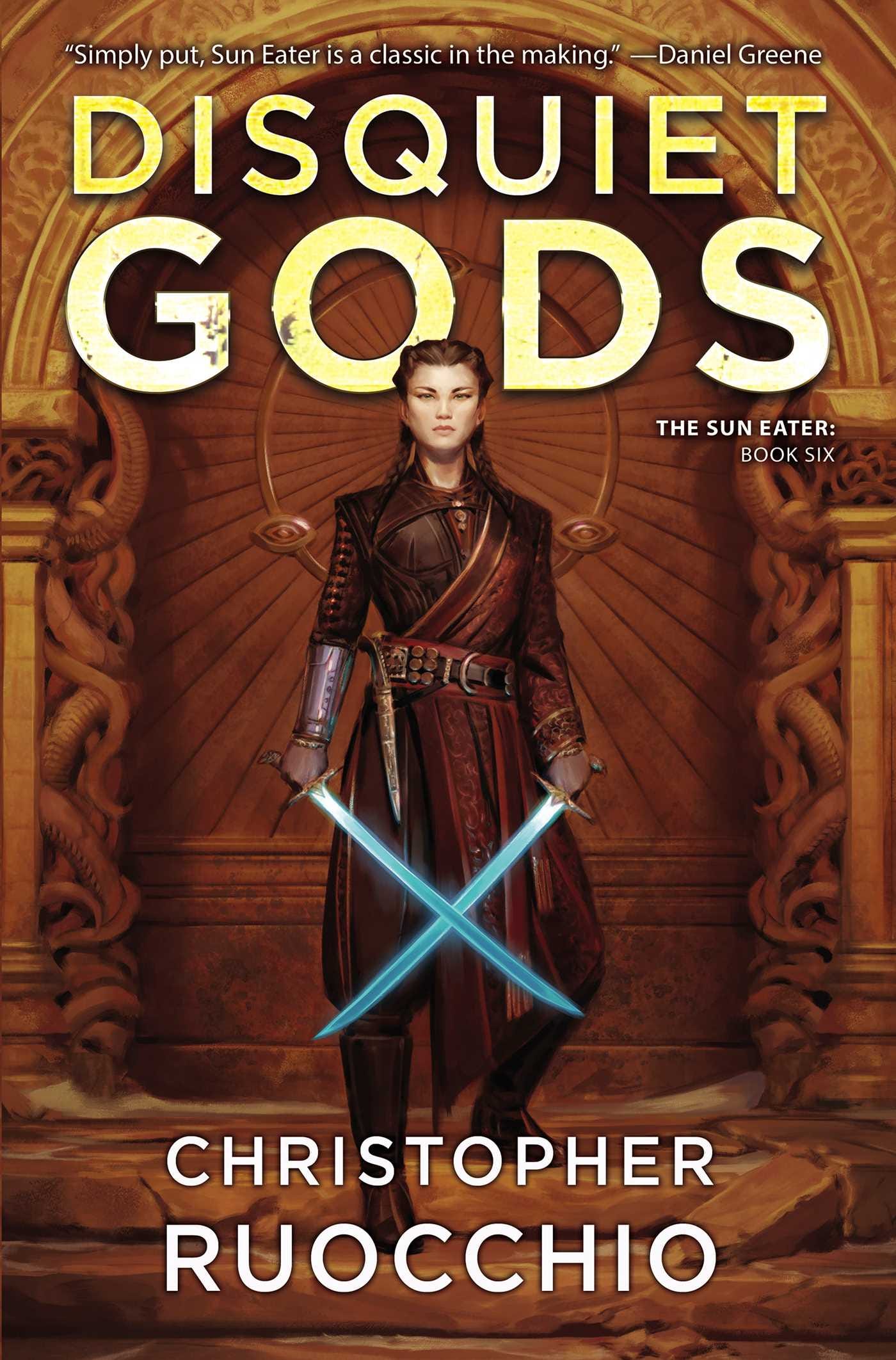In the age of Martin and Rothfuss, when three inch-thick fantasy novels have kicked off a series that will never be finished, it’s commendable to find an author who runs headlong against the odds and comes off conqueror, selling heaps and heaps of thousand-page tomes. Christopher Ruocchio has not only achieved this, and achieved it at a young age, he has done so consistently since his debut in 2018 with EMPIRE OF SILENCE.
Now, six years later, he introduces us to the penultimate installment of Sun Eater, a titanic opus with ambitions of reaching Tolkien and Herbert. It’s long. It’s slow. It’s heartbreaking. It drags you across the stars and beyond the centuries as you learn the life story of a man who not only destroyed an entire race, but their homeworld and their sun.
Summarizing a tale of this scope would be either woefully terse or painfully overwrought. Naturally the sixth book in a series that’s already over four thousand pages long could only be read after you grasp the first five. For that I refer you to Ruocchio’s own YouTube channel, where he has written up summaries of each individual volume.
Beyond that, I can only warn you of spoilers, and bid you adieu.
The Story
After publicly insulting the Emperor at the end of book 5, Hadrian finds himself in exile, cut off from a lifetime of accumulated resources and goodwill, hiding more or less on the Sollan Empire’s version of Arrakis without the spice. His one-and-only love interest from the first book, Valka, died tragically in the previous volume, but Hadrian reveals here that he and Valka paid an exorbitant amount of money to have a child together, and now Hadrian is raising Cassandra as a single father.
As happens often in this series, huge spans of time have passed since the last book. Two centuries, in fact. Characters can go into a long fugue state, passing decades in cryosleep, because wormholes and warp speed don’t exist here. You want to cross space, you’ve got to do your time. Hadrian himself has lived around for multiple centuries now, closer than not to a millennium, and almost half of that awake. These are not fast books and this is not a fast series. There are times when that works against it, but every time I get annoyed by the length and scope of these books, I remind myself that I’m still reading them, still anxious to see how it all plays out.
And in the case of DISQUIET GODS, Hadrian gets a call from the Emperor he insulted two hundred years ago, asking him to go on a specific mission, with a promise of redemption if he succeeds. For his own reasons and for the sake of his daughter, he takes the job.
The Characters
It’s got to be a major challenge to write a character of Hadrian’s age, experience, wisdom, and burdens, without coming up short. This is where I think the sheer size of the narrative counts as a positive, because a man who has lived that long and seen such cosmic spectacles would definitely carry himself different from you or me.
Personally, I like that he’s a man of classical aspirations. He has noble values despite the cruel practicality of the universe he lives in. For someone as long-lived as he, it would be easy to view life as consumable and disposable, yet he’s a one-woman man even as a widower. He can live for a thousand years and still be concerned with eternity. He’s not given to fits of passion, and when he commits to a certain path, he doesn’t waver. Would that those of us who might live to 90 should be the same.
The challenge of fatherhood was new and welcome too. In the blink of an eye Cassandra turns 40. She starts to consider things like courtship and her future, and even for Hadrian this tests his abilities. Ruocchio’s wisdom shows through in Hadrian’s interactions with his daughter.
The World
Other than the vastness of time and space, the worldbuilding is the most difficult aspect of Sun Eater. I advise readers to make judicious use of the glossary in the back of each volume, because Ruocchio doesn’t hit the brakes to explain every new thing he introduces to you. Much of it can be gleaned from context, and further detail can be found in the minute definitions.
To be very brief, there are cosmic beings in the darkness of space who aren’t bound by the same laws of time and physics as we are. Hell, some of them are moving backwards in time. There are alien races who worship these beings, and they’re bad news for humanity, not just the structure of the Empire. Hadrian has had contact with them throughout his life, and he’s coming to grips with powers they have given him, as well as the responsibility of the knowledge he carries. He’s gradually moving down a course of action that will result in utter xenocide, and the hell of it is, the worldbuilding makes it make sense.
This is where the Tolkien/Herbert-level ambition comes into play.
Politics
None.
Content Warning
Hard R for language and violence.
Who is it for?
If you’ve ever wanted Frank Herbert to write a Silmarillion for the entirety of the Dune saga, this is for you.
Why buy it?
Look, if you’ve bought the first book, you’re probably buying this book. Three different publishers haven’t been able to keep EMPIRE OF SILENCE in physical print long enough to satisfy readers. There’s a reason people keep gobbling up the copies every time a new print run hits the shelves. As for me, I’m excited that we’re one book away from seeing how this all comes together. If you decided to read through the spoilers to get here, know that you’ve got a year to catch up. Get reading.





Six books in, and that dude hasn't eaten even one sun yet?